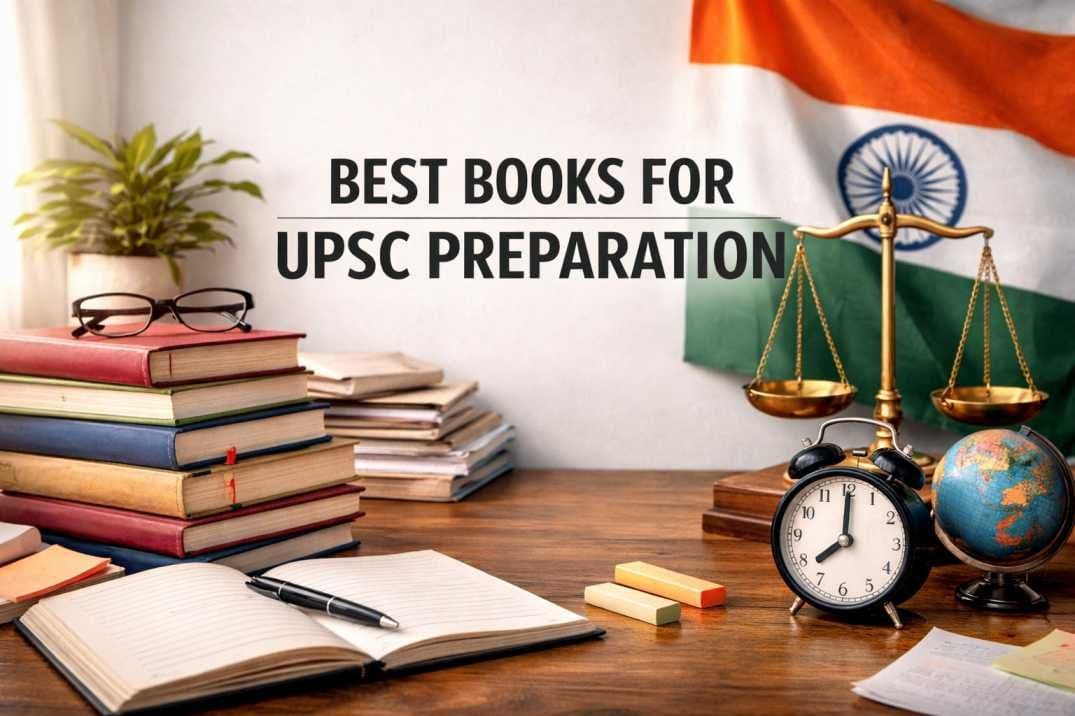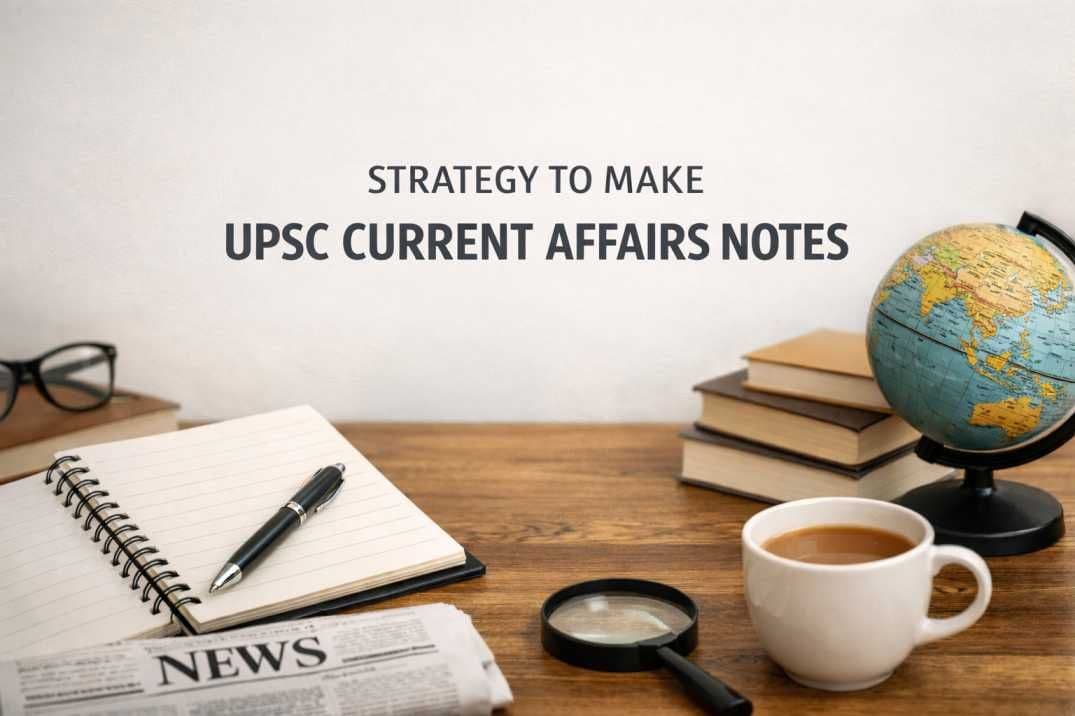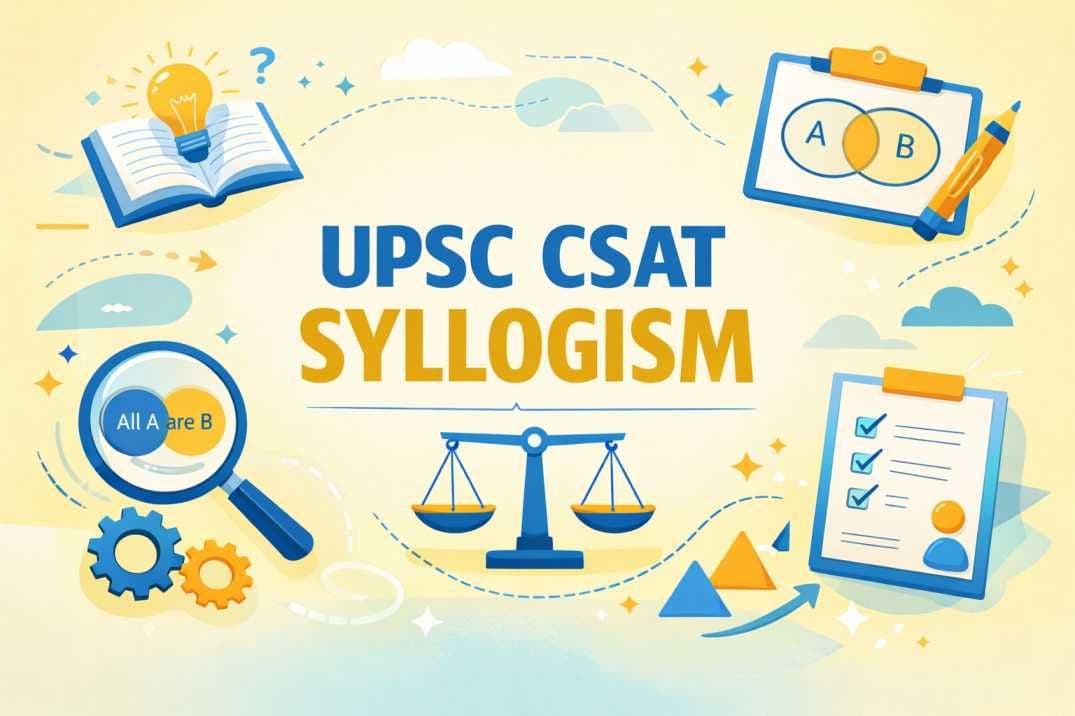Most Important UPSC Quotes for Essay & Ethics Mains Answers
Sep, 2025
•4 min read
“Words have the power to move nations, inspire revolutions, and transform societies.”
As a UPSC aspirant, you already know that the right words, used at the right time, can set your essay or ethics answer apart. This is where UPSC quotes turn into your sharpest tool for scoring high. Examiners look for originality, depth, and perspective, and a well-placed quote can instantly give your answers more weight, clarity, and elegance.
In this blog, we have compiled the most important UPSC quotes for Essay and Ethics Mains answers. This is your ready reference, carefully curated to save you time and help you present your ideas in a powerful and impactful way.
Why UPSC Quotes are Important in Essays & Ethics
Using quotes in UPSC answers adds depth, credibility, and makes your writing stand out.
- Builds strong introductions & conclusions
- Shows awareness of thinkers & leaders
- Adds clarity and authority to arguments
- Creates a lasting impression on examiners
- Makes complex ideas easier to explain in fewer words
- Differentiates your answers, making them stand out to examiners
- Useful in GS-I (society), GS-II (governance), GS-IV (ethics), and Essay papers
Together, these advantages make quotes a powerful tool to boost your UPSC Mains score.
Must see: UPSC Mains General Studies 4 Ethics Syllabus Analysis
Important Quotes for UPSC Essay and Ethics Paper
Below is a mentor-guided selection of UPSC quotes that can sharpen your essays and GS-IV answers.
1. Freedom & Democracy
“I do not agree with what you have to say, but I’ll defend to the death your right to say it.” – Voltaire
- Use in essays on democracy, free speech, and tolerance.
“Democracy is of the people, by the people, for the people.” – Abraham Lincoln
- Ideal for GS-II, polity-related essays.
“The price of freedom is eternal vigilance.” – Thomas Jefferson
- Use in governance/rights-based essays.
2. Education & Knowledge
“Education is the most powerful weapon you can use to change the world.” – Nelson Mandela
- Strong essay opener for education/social justice topics.
“Educating the mind without educating the heart is no education at all.” – Aristotle
- Ethics/GS-IV relevance.
“To educate a person in mind and not in morals is to educate a menace to society.” – Theodore Roosevelt
- Use in essays on values and character building.
3. Governance, Leadership & Integrity
“The best way to find yourself is to lose yourself in the service of others.” – Mahatma Gandhi
- GS-IV, public administration & ethics case studies.
“Power tends to corrupt, and absolute power corrupts absolutely.” – Lord Acton
- Governance, corruption, and accountability essays.
“Be the change that you wish to see in the world.” – Mahatma Gandhi
- Fits leadership, social reform, and ethics answers.
4. Corruption & Ethics
“Our scientific power has outrun our spiritual power. We have guided missiles and misguided men.” – Martin Luther King Jr.
- Use in essays on ethics, technology, and governance.
“Nearly all men can stand adversity, but if you want to test a man’s character, give him power.” – Abraham Lincoln
- Ethics case studies, leadership-related answers.
“Injustice anywhere is a threat to justice everywhere.” – Martin Luther King Jr.
- GS-II, GS-IV answers on justice, equity, and constitutional morality.
5. Society & Social Reform
“Caste is a notion, it is a state of mind.” – B. R. Ambedkar
- Essays on caste, social reform, and inequality.
“The measure of a civilisation is how it treats its weakest members.” – Mahatma Gandhi
- Social justice, welfare, and inclusive development essays.
“Patience is bitter, but its fruit is sweet.” – Aristotle
- Ethics paper, perseverance-related themes.
6. Women & Empowerment
“There is no tool for development more effective than the empowerment of women.” – Kofi Annan
- GS-I, social issues, gender equality essays.
“Educate a man and you educate an individual. Educate a woman and you educate a family.” – Charles Duncan
- Fits women empowerment/social reform themes.
“Women are the largest untapped reservoir of talent in the world.” – Hillary Clinton
- Essays on gender, economy, and workforce participation.
7. Environment & Sustainability
“We do not inherit the Earth from our ancestors; we borrow it from our children.” – Native American Proverb
- Excellent for environment, climate change essays.
“The greatness of a nation can be judged by the way its animals are treated.” – Mahatma Gandhi
- Use in biodiversity/environment-related essays.
“Earth provides enough to satisfy every man’s needs, but not every man’s greed.” – Mahatma Gandhi
- Fits sustainability, consumerism, and ethics answers.
8. Technology, Science & Progress
“Science without religion is lame, religion without science is blind.” – Albert Einstein
- Science-ethics balance essays.
“The real danger is not that computers will begin to think like men, but that men will begin to think like computers.” – Sydney J. Harris
- Essays on AI, ethics in technology.
“Technology is a useful servant but a dangerous master.” – Christian Lous Lange
- Good fit for digital governance, cybersecurity.
9. Motivation & Human Values
“The future depends on what you do today.” – Mahatma Gandhi
- Motivational conclusion for essays.
“Happiness depends upon ourselves.” – Aristotle
- Ethics case studies, philosophy-based essays.
“The only limit to our realisation of tomorrow will be our doubts of today.” – Franklin D. Roosevelt
- Good for futuristic/optimistic essay conclusions.
10. UPSC Conclusion Quotes
- “An ounce of practice is worth more than tons of preaching.” – Mahatma Gandhi
- “Character is destiny.” – Heraclitus
- “Small acts, when multiplied by millions of people, can transform the world.” – Howard Zinn
Must read: UPSC Essay Paper: Mastering Philosophical Topics with Practical Insights | Tips & Strategies
Get Your Mains Answer Evaluated in 60 Seconds
Instant feedback. No waiting. Know what to improve now.
Evaluate NowHow to Use Quotes Effectively in UPSC Essays
Quotes are not decorations; they are strategic tools. When used wisely, they can enhance an average essay into a valued one. Here’s how you can make the most of them:
- Introduction – Begin with a quote to set the tone and immediately capture the examiner’s attention.
- Conclusion – End with a quote to leave a lasting impression and tie your argument together.
- Supporting Arguments – Use selectively within the body when a quote directly strengthens your point.
Here is an Example from the UPSC Mains 2025 Essay Paper (Section B):
Question: “Contentment is natural wealth; luxury is artificial poverty”
Intro with Quote: Open with a thought-provoking line that sets the tone.
“He who is not contented with what he has, would not be contented with what he would like to have.” – Socrates
- Perfect for highlighting the timeless value of contentment.
Body with Supporting Quotes:
“Earth provides enough to satisfy every man’s needs, but not every man’s greed.” – Mahatma Gandhi
- Use while discussing sustainability, consumerism, and environmental balance.
“Wealth consists not in having great possessions, but in having few wants.” – Epictetus
- Fits when explaining why contentment is real wealth.
“Luxury is artificial poverty.” – Socrates (the core theme itself)
- Re-emphasise luxury as a trap leading to emptiness.
Conclusion with Quote:
Conclude with a reflective and memorable thought.
“Contentment makes poor men rich; discontentment makes rich men poor.” – Benjamin Franklin
- Wraps up the essay by directly connecting contentment with true wealth.
UPSC Mains 2025 PYQs — Live Only on SuperKalam!
Get UPSC Mains 2025 questions with model answers. Practice with instant Mains answer evaluation & smart diagrams, all in one place.
Start Practicing NowMistakes to Avoid with Quotes in UPSC
While quotes can enrich your essays and ethics answers, misusing them can backfire. Be mindful of these common pitfalls:
❌ Overloading Essays with Quotes – Too many quotes make your essay look like a compilation, not your original work. Limit to 1–2 per essay.
❌ Using Incorrect Attributions – Never misquote or wrongly attribute. Examiners can easily spot errors, and it harms credibility.
❌ Quoting Without Connecting to the Argument – A quote should support your point, not stand alone. Always explain its relevance in your own words.
❌ Copy-Pasting Without Contextual Fit – Don’t insert a quote just because it sounds impressive. Ensure it matches the theme and flow of your answer.
Remember: Quotes are tools, not fillers. Use them strategically to strengthen, not overshadow, your writing.
Also read: Best Books for UPSC Essay Preparation: From Orwell to Gurcharan Das
Smart Tips to Remember and Revise UPSC Quotes Effectively
Memorising hundreds of quotes isn’t necessary for UPSC Mains. What matters is having a small, powerful set of quotes that you can recall instantly during the exam. Here are some effective revision techniques to make that happen:
- Thematic Grouping: Organise quotes by themes like education, governance, ethics, environment, and women's empowerment. This helps you recall the right quote for the right essay.
- Flashcards or Sticky Notes: Write a quote on one side and its theme on the other. Keep them handy for quick review on your study table wall or during travel or breaks.
- Revision Before Essay Practice: Always revise 2–3 quotes before writing a mock essay. This strengthens memory and improves contextual usage.
- Quality over Quantity: Instead of chasing 100+ quotes, stick to 5–6 solid quotes per theme. These few, when well-placed, can transform your answers.
With regular recall and smart grouping, you’ll never struggle to bring the right quote at the right time in the exam hall.
Conclusion
Mastering these UPSC quotes by theme, revising them smartly, and applying them in the right places can turn average answers into high-scoring ones. Focus on quality over quantity, practice weaving quotes naturally into essays and ethics, and you’ll have a real edge in Mains.
Start your journey with SuperKalam today and give your preparation the winning edge!
Crack UPSC with AI-Powered Mentorship – Join SuperKalam today for instant answer evaluation, unlimited practice, and daily discipline. Download now!
Crack UPSC the Smarter Way
Download the SuperKalam App now and turn your UPSC dream into reality with expert guidance, curated notes, and smart practice tools.
Download Now


